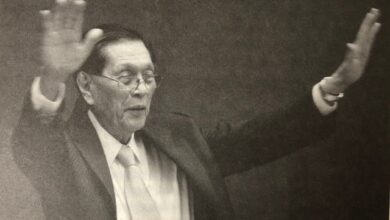
Apolinario Mabini: Learning from the “Brain of the Revolution”
In a time of war and upheaval, Apolinario Mabini proved that the strength of one’s ideas could be just as powerful as the force of arms. Because in the Philippine Revolution, he didn’t need to wield a sword or march into battle to lead a nation.
Utak ng Katipunan
Dubbed the “Sublime Paralytic” (Dakilang Lumpo) and “Brain of the Philippine Revolution” (Utak ng Katipunan), Apolinario Mabini remains one of the most respected Filipino heroes. At 31, he was paralyzed from the waist down after contracting polio. However, while this disability could’ve ended his public life, he chose to turn his mind into his greatest weapon.
Ideas Over Weapons
While other revolutionaries were on the battlefield, Mabini was busy laying the foundations of a government. Serving as President Emilio Aguinaldo’s chief adviser, he drafted key decrees and proposed a constitutional program that envisioned a just, participatory, and ethical government.
A notable work of his is “El Verdadero Decálogo” (The True Decalogue), which outlined values for nation-building, including honesty, patriotism, and civic duty. Far from being just a list of commandments, it served as a philosophical guide for shaping the character of both leaders and citizens in an independent Philippines.
A Voice for Inclusion
Mabini was eventually exiled to Guam for refusing to swear allegiance to the United States when they occupied Manila. However, he continued to write. His memoir, “La Revolución Filipina,” offered deep reflections on the strengths and weaknesses of the revolution.
Moreover, he stood firm on the principles of meritocracy and inclusion. Mabini once asked those who questioned the capabilities of a disabled person, “Does the job of Chief Justice of the Supreme Court require constant walking?”
Because to him, intellect and integrity mattered more than just physical strength.
READ: Melchora Aquino: Celebrating Her Legacy and Values
As we celebrate Apolinario Mabini on his 161st birth anniversary, let us remember that true leadership isn’t about physical stature, but moral vision. His life story teaches us that courage comes in many forms. And for him, a clear purpose can help shape a republic—even if he plotted from a rattan chair.




